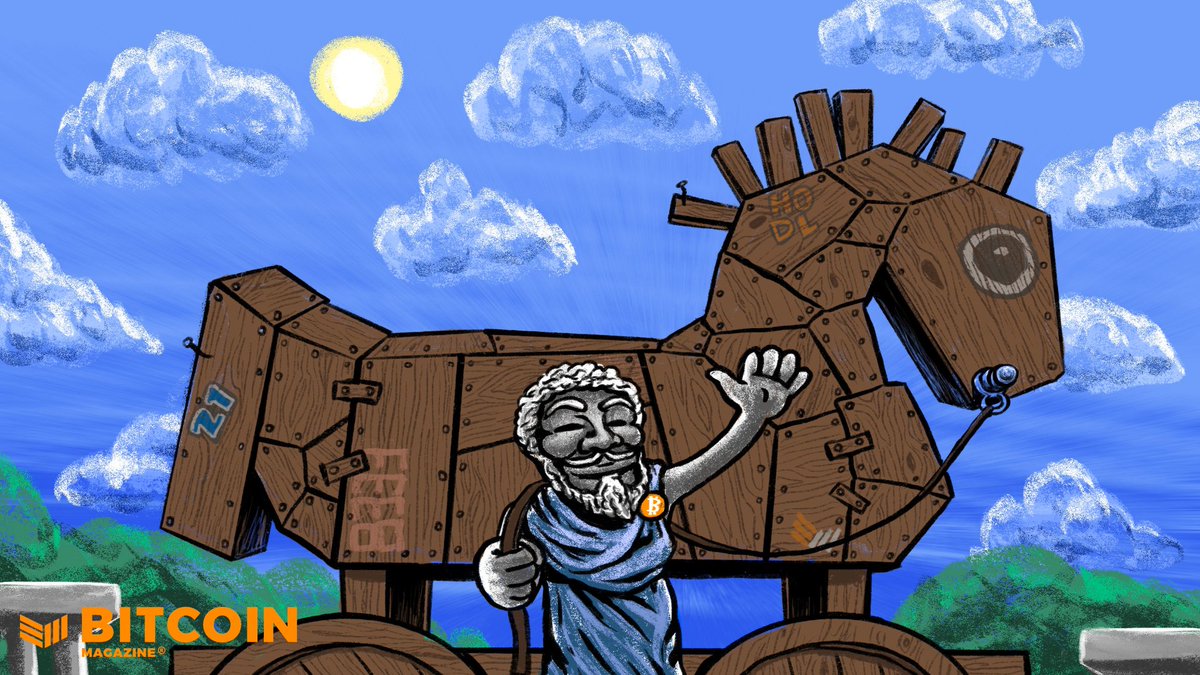
1/ A media outlet asked me to answer the question:
"Is the crypto revolution failing?"
Once they saw my response, they declined to publish.
They thought I would say no, but I said yes 🧵
gladstein.medium.com/is-the-crypto-…
"Is the crypto revolution failing?"
Once they saw my response, they declined to publish.
They thought I would say no, but I said yes 🧵
gladstein.medium.com/is-the-crypto-…
2/ The idea incepted by Satoshi Nakamoto of a peer-to-peer electronic cash system beyond the control of governments and corporations can seem like a distant memory when scanning news about today's top cryptocurrency projects.
3/ Dogecoin - -which caught mainstream attention after generating an 85x return over the past 12 months -- has turned corporate, launching a new advisory board starring Ethereum creator Vitalik Buterin and an individual representing the coin's top promoter, Elon Musk.
4/ Stablecoins pegged to the dollar like USDC and exchange tokens like Binance Coin are issued and operated by companies that work closely with governments and enforce regulations and blacklists.
5/ What's more, zooming out, stablecoins do more to promote the popularity of the US dollar abroad than usher in any kind of fundamental monetary upheaval.
6/ The most popular projects built on Ethereum are now either captured by special interests (see: DAI's problem with USDC) or are coming under regulatory pressure. For example, the protocol's star app, Uniswap, is under investigation by the Securities and Exchange Commission.
7/ According to the Global DeFi Adoption Index, growth in DeFi has been primarily powered by "experienced cryptocurrency traders and investors looking for new sources of alpha in innovative new platforms," with large institutions dominating transaction volume.
8/ In NFT land, the three most popular issuers by volume are regulatable companies - -Larva Labs, Art Blocks, and Yuga Labs - -not decentralized autonomous organizations.
9/ As for the most popular NFT marketplace, Open Sea, it is not a DAO either, but rather a company whose head of product was recently accused of insider trading.
10/ Governments are now even entering the arena and creating their own cryptocurrencies called Central Bank Digital Currencies.
The Chinese Communist Party has already rolled out its GovCoin to millions of people...
The Chinese Communist Party has already rolled out its GovCoin to millions of people...
11/ ...while the EU has been vocal about the progress of its "digital euro" project, and even the US government has discussed the idea of FedCoin as a matter of when and how, not 'if.'
12/ Given the current state of affairs, it is fair to ask: was the cypherpunk dream a sham?
Was it for riches after all, in a game where principles were dispensable and where negotiations with the state and corporatization were inevitable?
Was it for riches after all, in a game where principles were dispensable and where negotiations with the state and corporatization were inevitable?
13/ Few want to acknowledge this dilemma, where the main impact of “crypto,” Web 3.0, and DeFi has been to recreate a Wall Street system of Cantillon insiders, enrich a tiny few institutions/VCs often at the expense of retail token buyers, and extend dollar popularity globally.
14/ Can we still separate money and state and create an alternative system to corporate bailouts and mass financial surveillance?
Where is Satoshi's political revolution?
The answer is: in Bitcoin.
Where is Satoshi's political revolution?
The answer is: in Bitcoin.
15/ In a world where 1.2 billion people live under extreme inflation, Bitcoin's slow but steady increase in purchasing power over time for its users has been a literal lifeline for millions.
16/ According to recent exchange data, there are millions of Bitcoin users in major emerging market countries including India, Nigeria, and Turkey.
17/ Today, in any major urban area on earth, one can quickly find a buyer for Bitcoin, either through centralized exchanges or peer-to-peer marketplaces. This is as true in Havana as it is in Gaza or Minsk. The same cannot be said for Dogecoin, Solana, or Amazon stock.
18/ And this is where the real revolution emerges, against a backdrop of a world where most cryptocurrencies, equities, real estate, and bonds have mostly benefitted a small group of wealthy or connected insiders.
19/ To read more, here's the link to the full essay.
Do you disagree? Do you think crypto is living up to its promises?
Good! Let's have the conversation.
gladstein.medium.com/is-the-crypto-…
Do you disagree? Do you think crypto is living up to its promises?
Good! Let's have the conversation.
gladstein.medium.com/is-the-crypto-…
• • •
Missing some Tweet in this thread? You can try to
force a refresh




